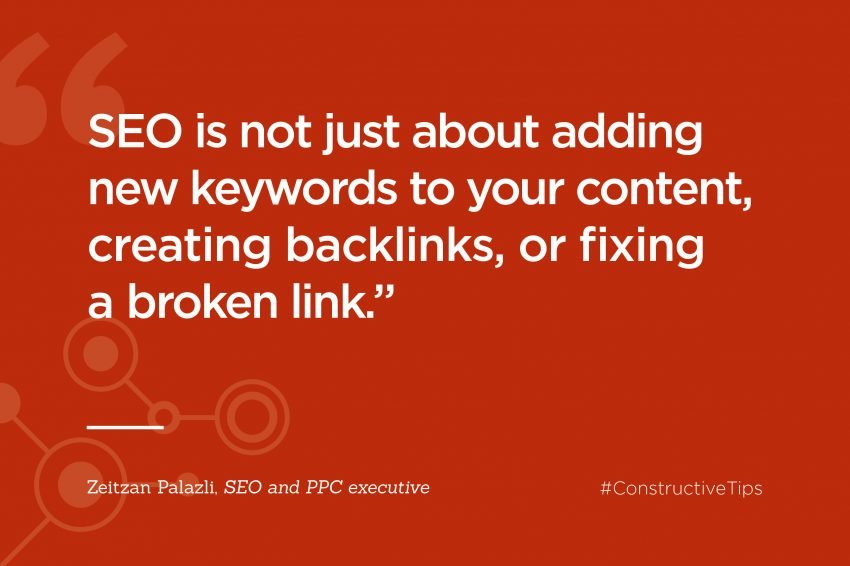A Guide to SEO: everything you need to know to get started
Published - 22nd August 2022

Search Engine Optimisation (SEO), first, emerged with the introduction of the Internet and the launch of the first websites (in the 1990s), but, nobody could predict the impact it would have on marketing today. In recent years job roles have been specifically created with the purpose of keeping up with SEO, examining its impact and using its functions to benefit clients.
As more websites have appeared online, the more it has created a need for structured and accessible data by search engines. That’s when search engines such as Google and Yahoo decided to simplify data indexing and data delivering.
While working with an SEO specialist will always deliver best results, it’s still useful to have an understanding of what this means and how it can be incorporated into a range of marketing disciplines, from web design to PR.
What is SEO?
According to Rand Fishkin, founder of Moz, SEO is “a set of practices designed to improve the appearance and positioning of web pages in organic search results”. In other words, SEO helps to improve your website’s visibility on the web and outrank other websites in organic search results. The key question here is how do we improve the visibility of a website?
SEO is not just about adding new keywords to your content, creating backlinks, or fixing a broken link. In order to fully understand how optimisation works, we need to consider three parameters of SEO:
- How search engines crawl, index, and rank websites
- What type of content your audience is looking for online
- How you can optimise your content, so search engines rank your website.
Crawling, indexing and, ranking
Crawling: Search engine bots crawl the web and look for new pages.
Indexing: The crawled pages are indexed. Indexed pages carry information about the content of the web page and its URL.
Ranking: A website’s position in the Search Engine Results Page (SERP).
Search engines crawl millions of pages every day which are then indexed and later on ranked and presented on search results as information relating to a user’s query. This might sound straightforward, but SEO experts are tasked with making sure your website is optimised enough to help search engines find and understand its content. This is achieved by creating accurate page titles, descriptive meta descriptions, meaningful headings, user-friendly URLS, and more.
Audience
Once SEO specialists have made sure your website’s pages are crawlable, then they need to look at your targeted audience, their behaviours and their needs. What is your audience searching online, what problems are they facing and how can you solve their problems? Google offers some very helpful and free tools that will help you get started, such as Keyword Planner, which can help you with keyword recommendations, discover new keywords, search volumes and future forecasts. Another helpful tool is Google Analytics (GA), which is an extremely helpful resource to have (if you haven’t set up your GA account, do it today!), because it offers a vast number of insights into how your audience is behaving on your website, what tasks they are performing, when they are exiting and more. Be sure to monitor your audience and use these metrics- it will improve your website.
Optimising
The task here is simple. Make your content engaging and interesting across all platforms, whether that’s website content or social media content. Don’t forget to make this content useful and offer solutions to your audience’s problems. Content can be achieved in the form of blogs, social media posts, forums, emails, Q&As, case studies and many more. Useful and valuable content spreads like wildfire, which can generate Electronic Word of Mouth (eWOM) around your brand and traffic to your website. It is however important to keep in mind, that you are not creating content for search engines but for your audience. If your audience thinks your content is powerful and authoritative, then Google will ‘see’ you that way.
Why is SEO important?
We could present a huge range of benefits of incorporating SEO in your strategy, but as a starting point, we’d like to focus on the most important ones. Search engine optimisation:
- Improves organic search. Most brands rely on organic search to increase their website’s traffic and visibility.
- Improves user experience. A website should be easy to navigate, clear and credible.
- Understands your audience. SEO provides insights into what users need.
- Impacts brand visibility. It can help your brand build good ranking and favourable placement.
- Is measurable. SEO offers metrics and reporting about keyword position, the competition, site audits and more.
Do you need an SEO Expert?
An SEO expert is a someone who can assist you in your marketing efforts to increase your website’s visibility on search engines. Many professionals have received formal training or qualifications and possess the knowledge, experience and skills to help you reach your goal.
An SEO professional can:
- Audit your website’s pages
- Offer technical advice for on-page SEO
- Keyword research
- Position tracking
- Competitive research
- Backlink Audit
- Content review and development
- SEO training
If you are considering hiring an SEO expert, the best time do it is when you are launching a new website, redesigning an old one or improving an existing one.
To find out more about how SEO can help your business, get in touch with our team today.
Harris »